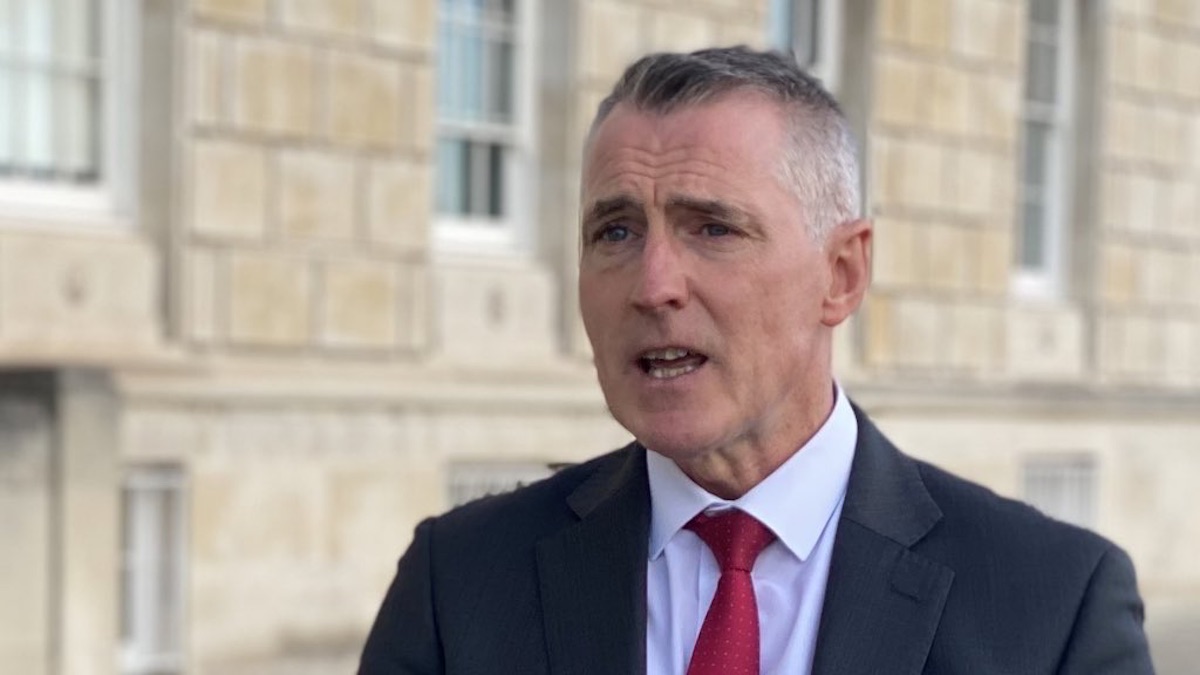
By Sinn Féin Executive Office Minister Declan Kearney
2022 was an unprecedented political year.
The Assembly election in May established Sinn Féin as the largest party in Ireland.
The people of the north voted for real change, for political parties to work together, to get the power sharing Executive and all institutions of the Good Friday Agreement, north/south, east/west, back up and running.
Sinn Féin Leas-Uachtarán Michelle O’Neill is now poised to become the north’s First Minister. Partition was engineered to prevent such an outcome ever happening.
The DUP collapsed the Executive in February following a series of poor opinion polls, and then doubled down on that position after the Assembly election when faced with the prospect of a Republican woman becoming First Minister.
Tory policy decisions have now turned the north into an economic and political backwater.
Local workers, families and small businesses are under extreme financial pressure as prices and the cost of living soars.
Our public services have been starved of investment by more than a decade of Tory austerity and cuts.
Workers have been forced to take industrial action in support of fair pay, terms and conditions, and the rights of citizens who want first class and safe public services.
The economic and political situation facing into 2023 is challenging, but it doesn’t have to be this way.
Constitutional change is now one of the most important discussions in our society.
Irish unity will create many opportunities to do things differently.
We can develop an Irish national health service. There is already multi party support for the Sláinte Care model in the south of Ireland.
Irish reunification could create an all-island education system, delivering as a leader of academic and vocational achievement. We could redesign our systems of democratic governance, public accountability, citizens rights, and policing and justice on an all-island basis: And, crucially, establish a route back into the EU.
2023 marks the 25th anniversary of the Good Friday Agreement. Its progress will be extensively reviewed.
However, the real focus should be on our direction as a society.
After 25 years it’s time to open a new phase of our peace process: to address full implementation of the Agreement, and restoration of all its power sharing and north/south political institutions. And, to realise its unfulfilled ambition of a society free from sectarianism, and the achievement of pluralism, social progress, and shared prosperity.
Much ground breaking work on achieving Irish reunification has already been done.
The ‘Ireland’s Future’ organised events Dublin’s 3Arena and Belfast’s Ulster Hall are clear barometers of popular engagement with the debate on reunification.
The momentum for constitutional change will continue growing throughout 2023. So it makes sense to prepare.
The transition towards Irish unity needs to be above electoral rivalries among democratic, progressive parties, inside and outside of government, north and south.
Managing constitutional change in Ireland should be a multi-party project.
There is no reason that a democratic consensus cannot be achieved. Multi-party support for the importance of proper power sharing in the north makes the point.
Professor Brendan O’Leary has advised us that ‘preparation is required to avoid chaotic, crisis decision making at some future date.’
In 2023 the Irish government and our political parties across Ireland should develop a shared island consensus to manage future constitutional change.
Let’s work together and deliver on the aspirations of our people.
![[Irish Republican News]](https://republican-news.org/graphics/title_gifs/rn.gif)
![[Irish Republican News]](https://republican-news.org/graphics/title_gifs/harp.gif)

